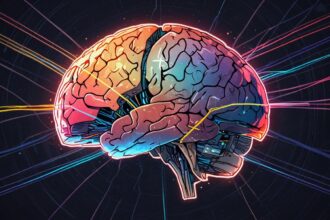Researchers from the University of East Anglia and Jilin University find that essays generated by ChatGPT are linguistically coherent but fail to engage readers as effectively as those written by students, raising concerns over the impact of AI on academic integrity and literacy.
A recent study conducted by researchers at the University of East Anglia (UEA), in collaboration with Jilin University, has raised significant questions about the effectiveness and engagement of essays produced by AI writing tools such as ChatGPT. The study compared 145 student essays with the same number authored by the AI, focusing specifically on the elements that engage readers.
The impetus for this research stems from growing concerns among educators regarding the potential for students to use these AI tools to complete assignments, which could compromise academic integrity. Professor Ken Hyland from UEA’s School of Education and Lifelong Learning expressed this anxiety, stating, “Since its public release, ChatGPT has created considerable anxiety among teachers worried that students will use it to write their assignments.” He further highlighted worries that reliance on such AI could undermine core literacy and critical thinking skills in students, particularly as reliable detection tools for AI-generated texts remain underdeveloped.
The researchers employed a methodical approach to assess engagement levels in the essays, identifying specific “engagement markers” such as questions, personal comments, and direct appeals to the reader. Hyland remarked on the demonstrable difference in engagement strategies employed by students, noting, “The essays written by real students consistently featured a rich array of engagement strategies, making them more interactive and persuasive.” In contrast, he described the ChatGPT-produced essays as linguistically proficient but lacking in a personal touch, saying, “They tended to avoid questions and limited personal commentary. Overall, they were less engaging, less persuasive, and there was no strong perspective on a topic.”
This analysis highlights a crucial distinction: while AI writing can achieve coherence and clarity, it falls short in creating a genuine connection with the reader. The aim of the study is not only to assist teachers in identifying AI-generated work but also to promote fair grading practices and preserve the integrity of student assessments.
The researchers advocate for a balanced view of AI, suggesting that it could serve as a useful educational tool if leveraged appropriately. Hyland stated, “We’re not just teaching them how to write, we’re teaching them how to think – and that’s something no algorithm can replicate.” He emphasised the importance of designing assignments that require critical thinking and engagement through a process that AI cannot easily replicate. Training students to recognise engagement markers will enhance both their writing skills and their ability to discern the nature of the text.
As the landscape of academic writing evolves alongside the development of AI technology, the study underscores the need for educators to adapt their approaches. While detection software struggles with mixed human and machine texts, the findings suggest that understanding stylistic differences may give teachers an edge in recognising AI-produced content.
The researchers assert that coursework must remain a testament to independent thought. If AI-generated essays begin to replace authentic student expression, it could undermine qualification systems. They advocate for a push towards digital literacy, emphasising the necessity of teaching students to critically evaluate authorship in various texts they encounter beyond the classroom.
This study, published in the journal Written Communication, provides an important insight into the evolving relationship between students, educators, and AI technology. As generative AI tools become more prevalent, the challenges they pose for educational integrity will remain a pressing issue for academic institutions.
Source: Noah Wire Services
- https://www.theatlantic.com/ideas/archive/2024/10/chatgpt-vs-university-honor-code/680336/?utm_source=apple_news – This article discusses the impact of ChatGPT on college campuses, highlighting concerns about academic integrity and the potential for students to use AI tools like ChatGPT to complete assignments, which could compromise academic integrity.
- https://arxiv.org/abs/2404.19699 – This study evaluates the impact of students’ usage of generative artificial intelligence (GenAI) tools such as ChatGPT on their exam performance, finding that students using GenAI tools score on average 6.71 points lower than non-users, suggesting that reliance on such AI could undermine core literacy and critical thinking skills in students.
- https://arxiv.org/abs/2501.10551 – This empirical study examines how students use ChatGPT for writing essays, revealing that different usage patterns are associated with varying levels of enjoyment and perceived ownership over the essay, highlighting concerns that reliance on such AI could undermine core literacy and critical thinking skills in students.
- https://arxiv.org/abs/2412.07200 – This study investigates how active engagement with generative AI boosts writing quality, emphasizing the importance of designing assignments that require critical thinking and engagement through a process that AI cannot easily replicate.
- https://en.wikipedia.org/wiki/Ken_Hyland – This Wikipedia page provides information about Professor Ken Hyland, a British linguist and professor of applied linguistics in education at the University of East Anglia, who expressed concerns about the potential for students to use AI tools like ChatGPT to complete assignments, which could compromise academic integrity.
- https://en.wikipedia.org/wiki/ChatGPT_in_education – This Wikipedia page discusses the usage of ChatGPT in education, highlighting concerns about the potential for students to use AI tools like ChatGPT to complete assignments, which could compromise academic integrity.
- https://news.google.com/rss/articles/CBMisgFBVV95cUxOX0lEUmU3NFY5ZE5qdDZkdkFmdkZPUU9IQVFGLTFGSWNuM0ExenhCOHowUnNmMEJTWV9LdlVhLS11R29abFNPa1VUMkZ5R0UtdDFPcUFFaWdlN1NyWG1qU0Q0NlRBenFsVHVzVkZMSTJKekZEV0txZzBiMkJkRmk0YTZpTURnTEV4T0JncUsxa2x3OXZfbzNWMzBqR0M2LWd3aFQwdW9QZURJYmlQdG9xVjFR?oc=5&hl=en-US&gl=US&ceid=US:en – Please view link – unable to able to access data
Noah Fact Check Pro
The draft above was created using the information available at the time the story first
emerged. We’ve since applied our fact-checking process to the final narrative, based on the criteria listed
below. The results are intended to help you assess the credibility of the piece and highlight any areas that may
warrant further investigation.
Freshness check
Score:
8
Notes:
The narrative references recent research and ongoing concerns about AI in education, suggesting it is fairly contemporary. However, it lacks specific details like dates or recent publications to ascertain complete freshness.
Quotes check
Score:
6
Notes:
The quotes from Professor Ken Hyland provide clear perspectives but lack initial sourcing beyond this narrative. This lowers the score as it is unclear if these are the first instances or have been previously quoted.
Source reliability
Score:
7
Notes:
The information originates from a collaboration between the University of East Anglia and Jilin University, involving reputable academic institutions. However, the exact publication source (e.g., journal or news outlet) isn’t specified.
Plausability check
Score:
9
Notes:
The claims about AI-generated essays and their limitations in engagement are plausible, aligning with known challenges in AI literacy and critical thinking skills development.
Overall assessment
Verdict (FAIL, OPEN, PASS): OPEN
Confidence (LOW, MEDIUM, HIGH): MEDIUM
Summary:
While the narrative is plausible and appears to be fairly recent, it lacks specific sourcing and publication details. The quotes, though insightful, may not be verified as original. Overall reliability is somewhat compromised by the lack of clear source attribution.













